It is not an exaggeration to compare car oil to the blood of an engine. Without car oil, the engine cannot operate smoothly and can even lead to serious consequences, causing damage to the user. Therefore, anyone who uses a car must have knowledge about car oil. In the following article, Tinxe.vn will provide you with the most comprehensive and accurate information about car oil.
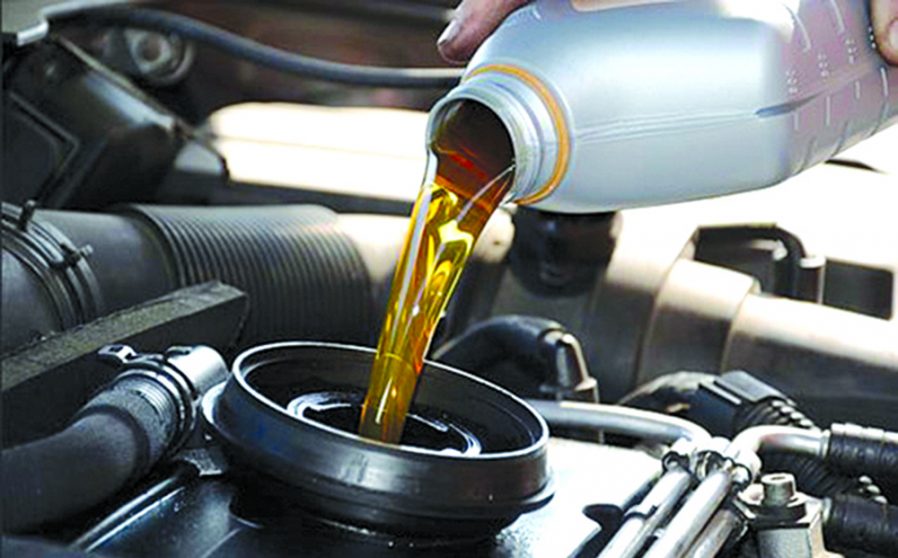
The effects of car oil
According to research, about 75-95% of car oil is made from base oil produced by oil refineries. In addition, car oil also contains additives such as corrosion inhibitors, antiwear agents, antioxidants, detergents, dispersants, antifoam agents, or viscosity modifiers.
Typically, car oil is contained in sumps and pumped into the engine to lubricate components such as the camshaft, connecting rod, piston, or crankshaft. Without car oil, the internal components of the engine will be worn out due to friction during operation.
Furthermore, during the combustion process of the air-fuel mixture in the engine combustion chamber, carbon deposits and dirt will be generated. At this point, the additives in the car oil will take effect by cleaning the surfaces of the internal components of the engine. Moreover, the carbon deposits and dirt will be dispersed into small particles and then retained in the car oil. After use, the car oil will return to the sump for reuse until it loses its quality and needs to be replaced.
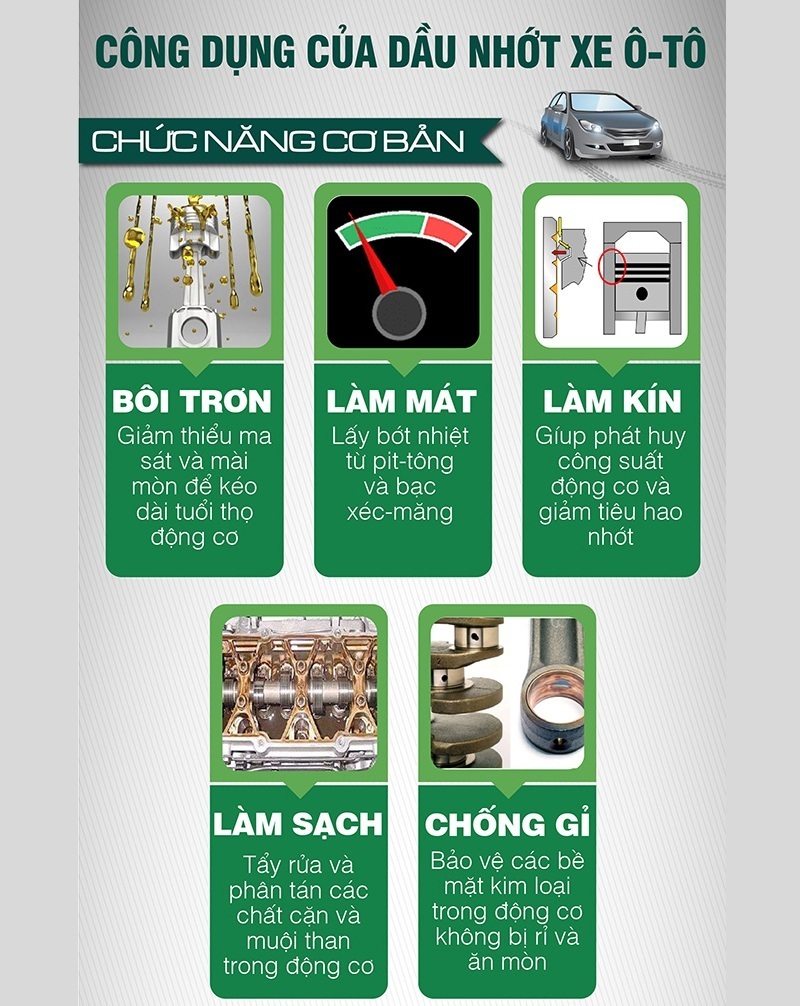
Therefore, in general, car oil has several main effects such as reducing friction and wear in the engine, preventing rust, or cooling the piston.
How to check car oil
Contrary to popular belief, checking car oil is not complicated at all. To check car oil, you can use the dipstick provided with the car to determine if it is time to “change the blood” for the engine. Just open the hood of the car, and you will find the dipstick with a yellow handle on the engine.
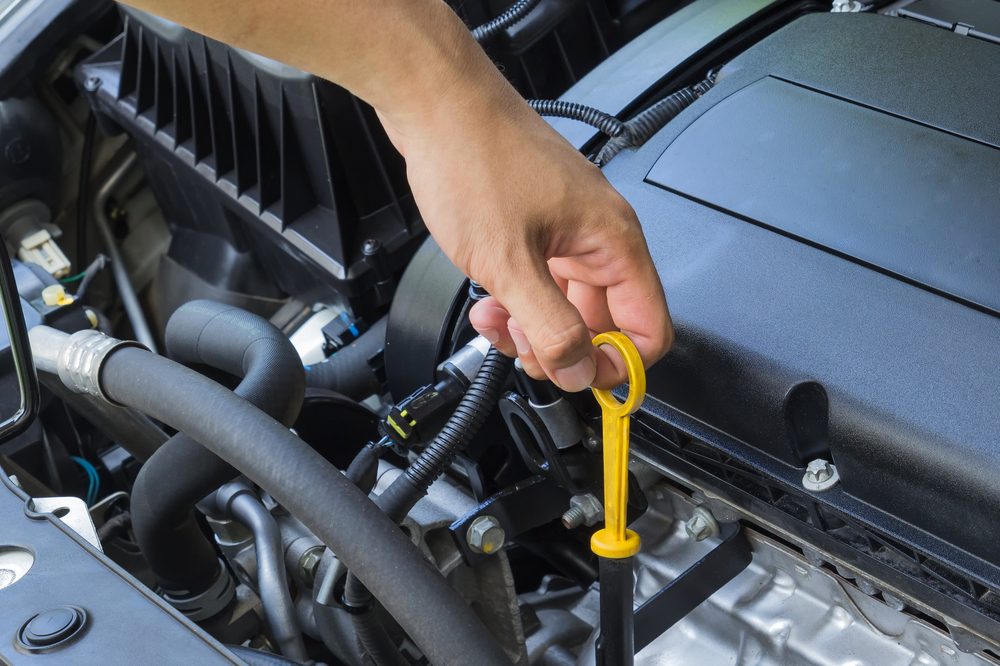
By observing the dipstick, you will see two levels: “Max” and “Min”. The oil level should be between these two levels, and the optimal oil level is close to “Max”.
In addition to knowing the current oil level of the engine, the dipstick also allows the car user to know if the oil needs to be changed. To do this, you need to observe the color of the oil on the dipstick. If the oil on the dipstick is black, it is time to change the oil for the car. If the oil is orange, there is no need to change it yet.
When to change car oil?
“How long should a car go before changing oil?” or “How many kilometers should a car go before changing oil?” are probably questions that many car users have asked. According to automotive experts, when to change car oil depends on the type of car and the type of oil as required by the manufacturer. Typically, car oil should be changed after running about 3,000 – 5,000 km or 3 months. Some car manufacturers have extended the oil change interval to 12,000 – 16,000 km or 6 – 12 months.
In addition, for multi-grade oils such as 5W 10W, car oil should be changed every 3 months, regardless of whether the car is driven frequently or infrequently. The corresponding time for 0W oil is 6-12 months.
Furthermore, the oil change interval also depends on the age of the car, the operating environment, and the driving habits of the user. If you frequently drive in conditions such as traffic jams, floods, or frequent stops and starts, you should change the oil earlier.
How to choose car oil?
On the market, there are many different types of car oil. When choosing car oil, you should pay attention to the following two basic criteria.
- Viscosity grade (SAE)
When reading the labels on oil bottles, you may come across symbols such as SAE 10W-30, SAE 15W-40, SAE 20W-50, or SAE 0W-40. Among them, the numbers before the letter “W” are used to indicate the temperature range at which the oil can assist the engine to start, but at low temperatures. For hot and humid tropical countries like Vietnam, you do not need to pay attention to this parameter.
The number after the “W” is the parameter you should pay attention to. The higher the number, the thicker the oil, and vice versa. For vehicles that frequently travel long distances, you should choose thick oil, otherwise, it may cause “engine knocking” phenomenon. For vehicles that only travel within the city, you should choose thin oil to make it easier for the engine to start when it has to stop or turn off the engine multiple times.
- Quality grade (API)
API is the standard used to classify the quality of oil for gasoline engines and diesel engines. The API quality grades of oil for gasoline engines begin with the letter “S”, such as SA, SB, SC, SE, SF, SG… Meanwhile, the API quality grades of oil for diesel engines begin with the letter “C”, such as CA, CB, CC, CD…
The last letter, which comes after “S” and “C”, is used to distinguish between different grades, arranged in alphabetical order. The letter that comes later indicates a higher grade. For modern car models, you should choose oils with higher quality grades such as API SL, API SM, or API SM for gasoline engines, and API CH-4 or CI-4 for diesel engines.

- Should I choose mineral oil, synthetic oil, or semi-synthetic oil?
After choosing the viscosity grade and quality grade, you should choose the appropriate type of oil. There are three types of car oil that you can choose from: mineral oil, synthetic oil, and semi-synthetic oil.
Mineral oil is oil extracted from petroleum through the distillation process, removing wax and impurities. It is often used to blend high viscosity oils. This type of oil is inexpensive but its lubricating ability is not stable, especially under extremely low or high temperatures.
On the other hand, synthetic oil is produced in chemical plants to meet the precise requirements of modern engines. Therefore, synthetic oil usually has a higher price. However, synthetic oil has high lubricating ability, specialized features, and a long service life. Moreover, synthetic oil can work well at high and very low temperatures.
Semi-synthetic oil is a combination of mineral oil and synthetic oil. Therefore, this type of oil has improved lubricating ability compared to mineral oil and has a lower price compared to synthetic oil. Semi-synthetic oil is currently the most commonly used type of oil.
What is the best car oil currently?
Read more
If you are unsure of the best car oil for your car, you can refer to some of the products below.
- Castrol GTX Magnatec Motor Oil
Containing special molecules, Castrol GTX Magnatec motor oil can provide better engine protection during startup, which is a stage where 75% of engine wear occurs. This type of motor oil is also suitable for car models equipped with button start systems.
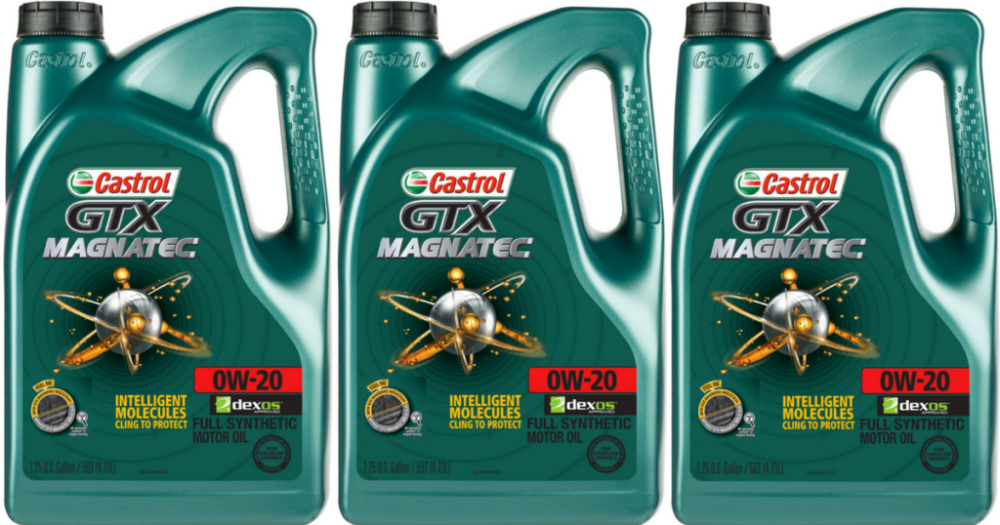
Currently, Castrol GTX Magnatec motor oil is available in types such as 0W-20, 5W-20, 5W-30, and 10W-30 for you to choose from.
- Mobil 1 Advanced Fuel Economy Motor Oil
Mobil 1 Advanced Fuel Economy is suitable for those who want to save fuel consumption. With low viscosity, this motor oil improves the performance of the engine and saves fuel consumption. The oil’s viscosity is also evenly distributed, making it easier for the engine to start when the weather is cold.
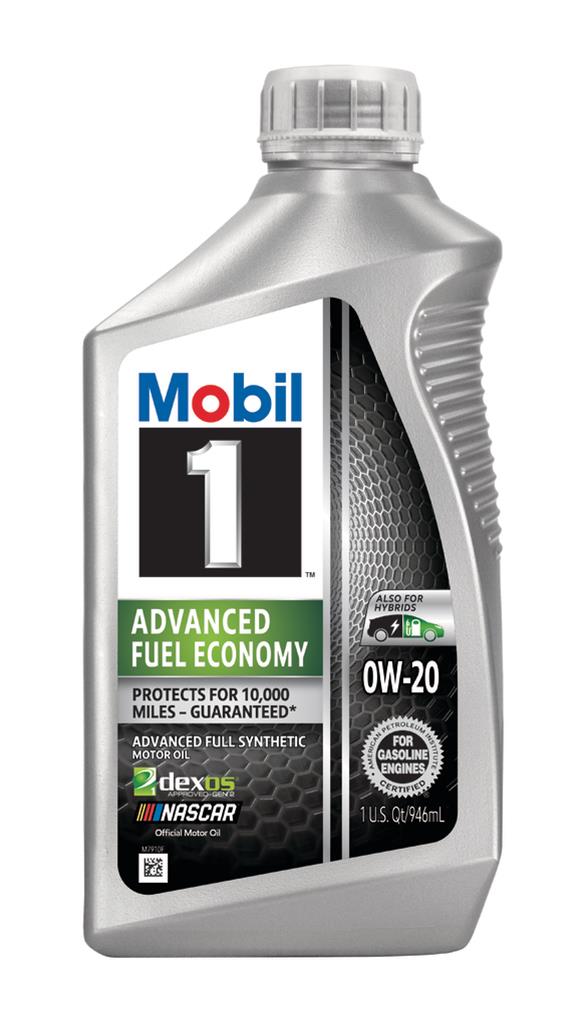
Currently, Mobil 1 Advanced Fuel Economy motor oil is available in types such as 0W-20 and 0W-30 for you to choose from.
- Motul 8100 X-Clean Motor Oil
Motul 8100 X-Clean is a synthetic motor oil specially designed for modern engines: gasoline engines, diesel engines, turbocharged engines, and direct injection engines. Motul 8100 X-Clean enhances protection, anti-wear, performance, and acceleration capabilities. Moreover, Motul 8100 X-Clean has excellent thermal stability.
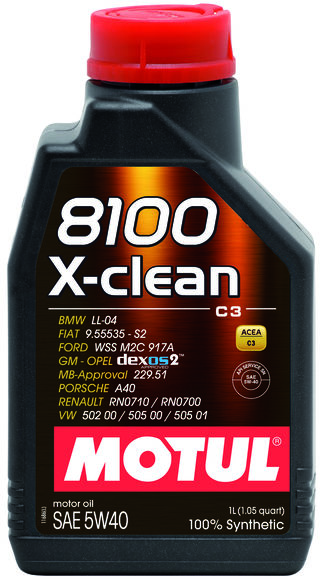
Motul 8100 X-Clean motor oil is currently available in types such as 5W-30 and 5W-40 for you to choose from.
- Total Quartz 9000 Energy 0W-40 Motor Oil
Total Quartz 9000 Energy 0W-40 is a fully synthetic motor oil, suitable for all high-performance car engines, direct injection engines, multiple valve engines, and turbocharged engines. This type of motor oil helps prevent wear, prolong engine life, extend oil change intervals, keep the engine clean, and save fuel consumption. Moreover, Total Quartz 9000 Energy 0W-40 motor oil has a uniform viscosity, making it easy for the engine to start in cold weather.
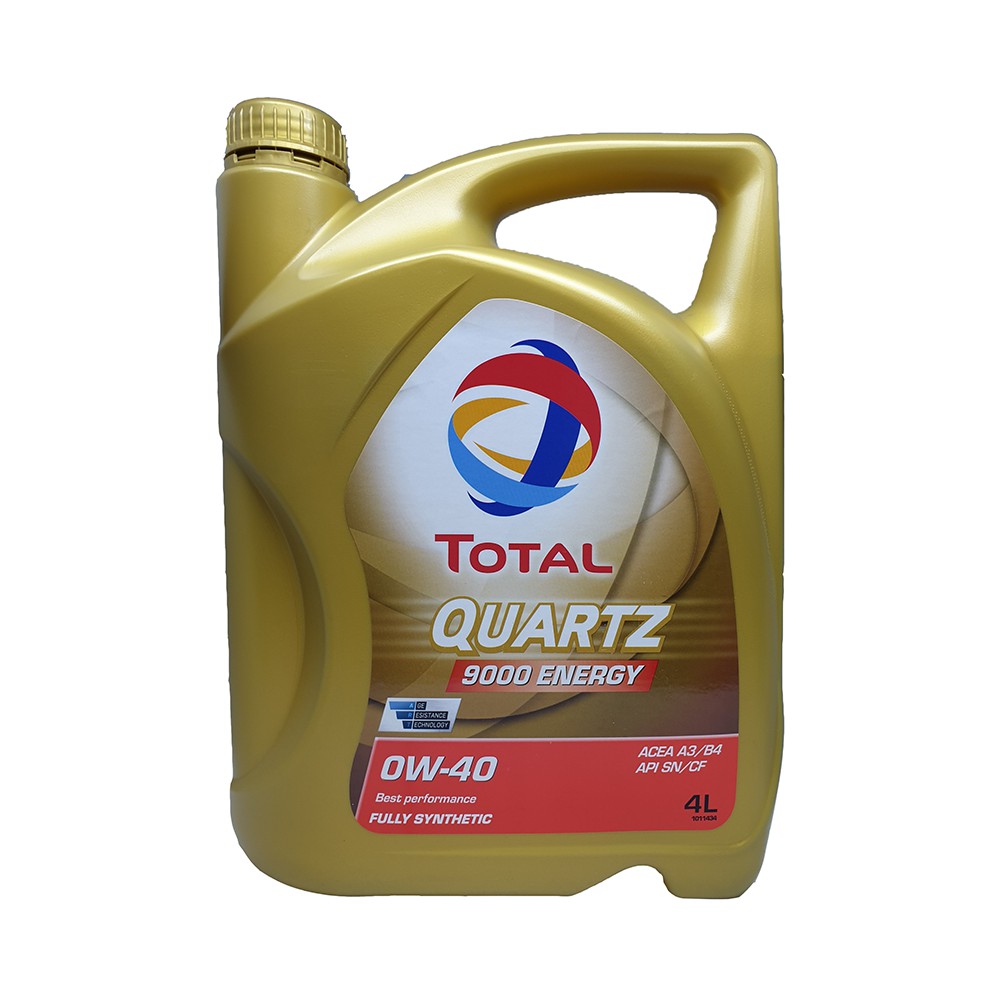
How to change car oil
Usually, car owners will take their cars to a garage to have the oil changed. However, if you want, you can learn how to change the oil at home by following the instructions below.
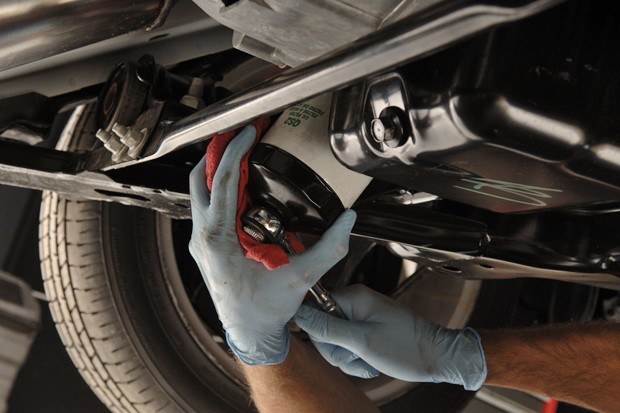
- Step 1: Prepare the necessary tools for changing car oil
- Step 2: Place the oil drain pan in the correct position
- Step 3: Open the oil drain plug and remove the sludge and old oil accumulated in the car. Make sure to completely drain the oil before tightening the plug.
- Step 4: Remove and clean the oil filter or replace it if necessary. During the oil filter change, you need to add oil to the gasket of the new filter and apply a layer of oil to the rubber pads on the filter to seal the filter and prevent the pads from breaking when installing. Install the new filter in the correct position of the old oil filter in a vertical direction and then tighten the screw.
- Step 5: Open the oil filler cap, place a funnel in the correct position, and pour new oil into the car. You should refer to the owner’s manual to ensure that you choose the right type of oil and the correct volume.
- Step 6: Start the engine and reset the oil change warning.
Through the article above, we hope to have provided you with the most comprehensive and useful information about car oil!
Lan Quyen









































